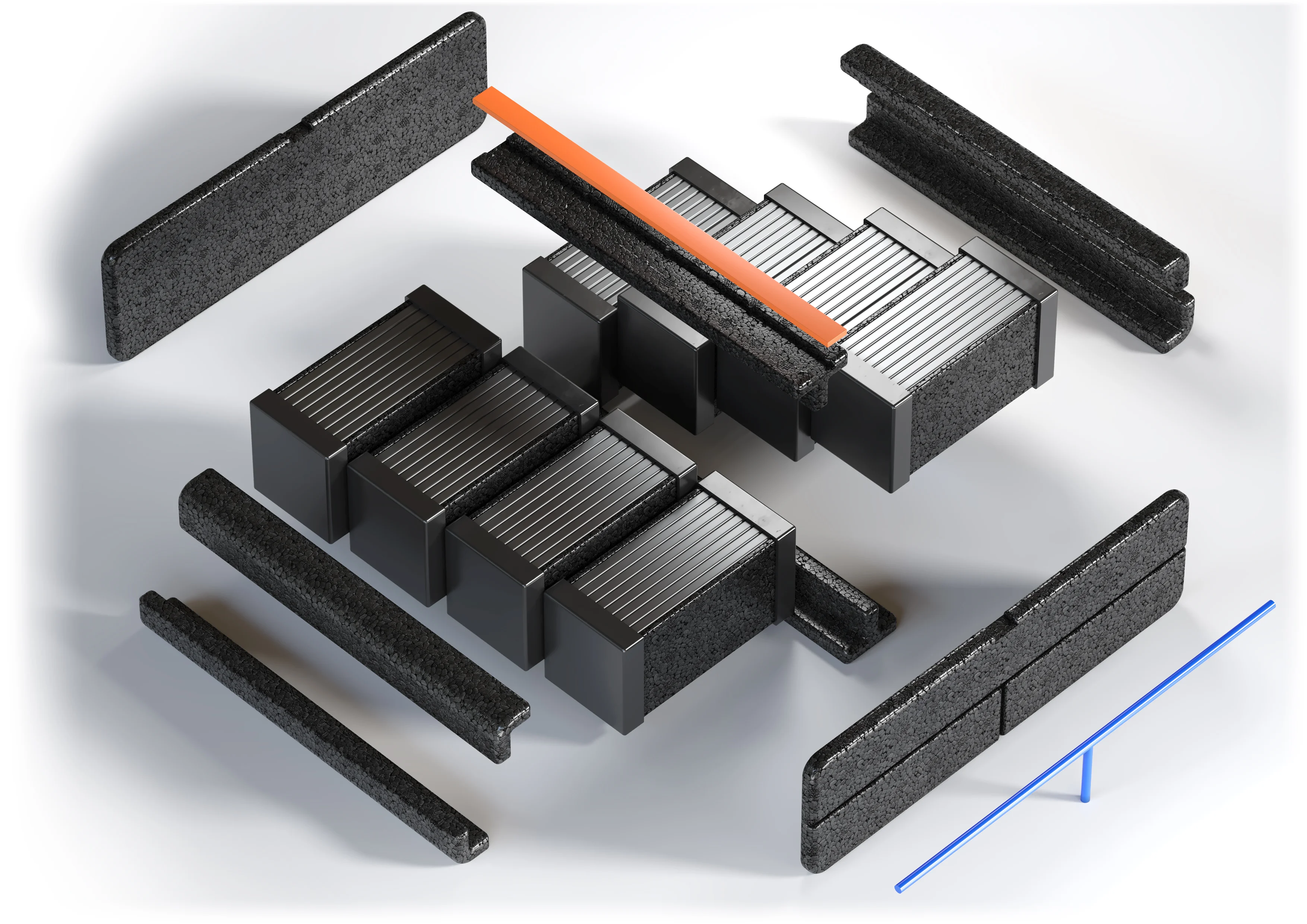The rapid growth of electromobility around the world has led to the development of many new types of cars. It is worthwhile to learn about the capabilities of different types of hybrid and electric cars, including, among others, extended-range hybrids.
What is range-extended EV?
Extended Range Electric Vehicles or EREVs are vehicles in which propulsion power is provided almost entirely by an electric unit. They are additionally equipped with a small internal combustion engine to generate additional energy. These types of cars are often seen as series hybrids with a much larger battery, the capacity of which is usually 10 to 20 kWh.
How does an extended-range hybrid work?
When the battery is discharged to a specific level, the combustion unit starts up, thereby turning on the generator. Its task is to provide energy to the electric motor, as well as charge the battery. Thanks to the use of such a drivetrain, it becomes possible to increase range, which can be quite a problem in other electric or hybrid vehicles. The biggest advantage of EREVs is that, despite the presence of an internal combustion engine, they are almost as environmentally friendly and energy-efficient as BEVs. The internal combustion unit is used only to keep the battery charged and not to directly propel the vehicle.
What is the future of EV with range extender?
Regulatory restrictions on vehicle emissions are becoming more and more demanding, which translates into the rapid development of electric and hybrid cars. Automotive manufacturers have been working very hard to reduce the production of exhaust gasses for several years, but the electromobility market still faces some challenges. One of them is the still underdeveloped infrastructure of charging stations, which prevents the large-scale use of electric vehicles. An indirect solution to this problem is the introduction of hybrid models – these are low-emission vehicles that are steadily gaining popularity. Although the most frequently purchased cars in Europe today are still internal combustion models, hybrids have already surpassed diesel cars and now account for more than 30% of the market.
Differences between EREV and BEV, HEV, mHEV, pHEV and FCEV
At the same time, it is worth noting that drivers can opt for different types of electric and hybrid cars, which differ in, among other things, drive characteristics or ways of recharging energy shortages. The most popular types of electric cars are BEV (Battery Electric Vehicle), HEV (Hybrid Electric Vehicle), EREV (Extended Range Electric Vehicle) and FCEV (Fuel Cell Electric Vehicle).
EREV
EREV is a type of extended-range electric vehicle, which is often referred to as the opposite of a mild hybrid. In this case, it is the internal combustion engine that acts as a booster, while the electric unit is responsible for propelling the car under a heavier load.
BEV
Battery Electric Vehicle is a vehicle powered solely by electricity. These are zero-emission cars in which the only source of propulsion is an electric drive unit. An important part of the equipment of BEVs is, of course, the battery (usually lithium-ion) and the socket that is used to charge the battery via, for example, a wallbox or fast charging station.
HEV
Another popular variety of low-emission vehicles are hybrid cars (HEVs). The propulsion system in such cars consists of two separate engines: an electric one and an internal combustion engine. The former operates mainly during starting and driving at speeds up to 50 km/h, while the combustion unit joins it during higher loads. In some models, it is not possible to recharge the battery with an external power source – energy is recovered only when the vehicle is braking or rolling.
Among HEVs, there are several additional sub-types. One of them is the so-called mild hybrid (mHEV) – such vehicles use a much weaker electric motor than in standard variants. Of note is the pHEV (plug-in hybrid), which can be connected to an external power source.
FCEV
FCEVs are the last category of electric cars that use hydrogen to power them. These types of vehicles are equipped with fuel cells, which guarantee a much longer range and the ability to recharge faster.
Could hydrogen cars be an alternative to extended-range hybrids?

Although electric vehicles make up the vast majority of the European market, there are many indications that hydrogen could be the fuel of the future. Among its greatest advantages are the potentially almost unlimited quantities of the resource, its high energy calorific value and zero emissions when powering vehicles. However, the use of additional energy resources to obtain the fuel must also be taken into account. Energy efficiency, the occurrence of losses during transportation, the safety of using hydrogen fuel and the lack of availability of charging stations are also questionable. All this means that the real development and large-scale implementation of hydrogen technology is still a song of the future. The advantages and disadvantages of hydrogen fuel are, on the one hand, environmental friendliness and long range, and on the other hand, efficiency and high flammability of the element, among others. Currently, it is the downsides of this solution that are of greater importance, but it is possible that as the technology develops, hydrogen-powered cars will become safer and more accessible.
Components for extended-range hybrids made by Knauf Automotive
At Knauf Automotive, we offer modern processing methods for innovative materials. One of these is foamed polypropylene (EPP), which was designed for the development of green propulsion technologies. We are a manufacturer of modern automotive components, such as insulation systems for car batteries. We also provide full support at every stage – from design to implementation, maintaining the highest quality standards.